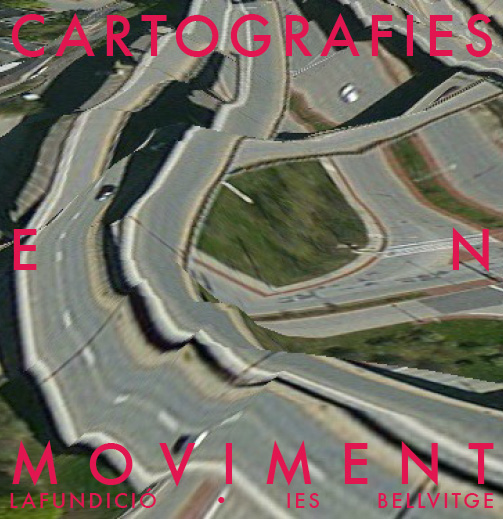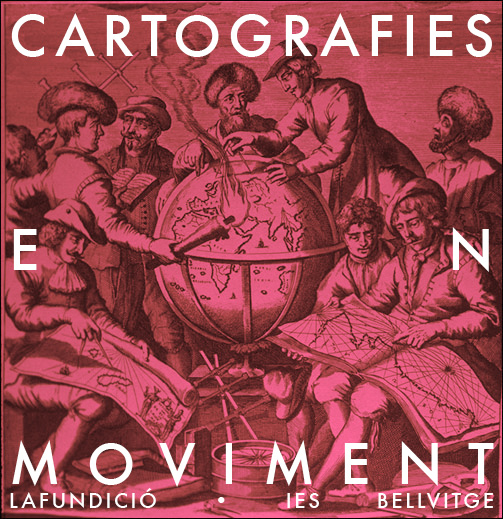

The proposal is part of a series of actions and collaborations that we will develop in Bellvitge during 2013 and in view of the year 2015, the date on which the neighborhood’s 50th anniversary will be celebrated. On the occasion of this celebration, several entities in the neighborhood are preparing various actions within the framework of a historical memory program to which we want to add initiatives such as Cartografies en moviment. The process and result of Cartografies en moviment will also enter into dialogue with the project
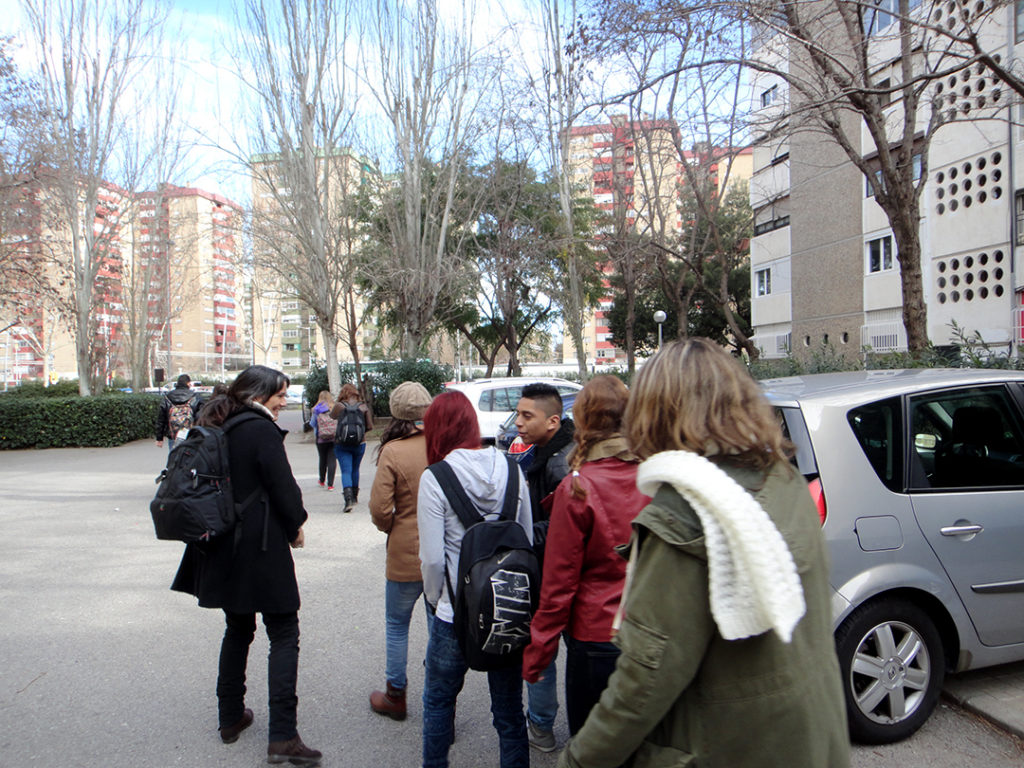
The Bellvitge and Gornal neighborhoods of L’Hospitalet – like others in the metropolitan area of Barcelona – are areas that have long been stigmatized; often for dragging an imaginary linked to the conditions in which they were built, the result of massive migratory processes that led to shantytowns and difficult living conditions.
This situation of impoverishment in the 40s translated in the 60s and 70s into the perception of these neighborhoods as dangerous and marginal, a fact to which the mass media such as cinema, the press or television contributed (in 1977 Perros Callejeros was released, for example).
At present, the struggle of neighbors in the demand for equipment is usually recognized as the key to ensuring that these territories do not become ghettos. In January of this year (2012), the newspaper El Periódico published an article entitled El milagro de Bellvitge in which it could be read: «The metamorphosis of the neighborhood of L’Hospitalet is an example of how to combat marginality» and in which this fact was reasoned, remarking the importance of the associative fabric.
The current situation of systemic plunder is once again endangering these communities: austerity policies lead to the cancellation of cultural programs and the closure of facilities or to keeping them to a minimum. We believe it is necessary for citizens to organize and raise awareness of this situation, and to put into practice new forms of management of cultural facilities, which integrate culture into social practices and into the daily lives of neighborhoods and, at the same time, demand that the necessary public resources be allocated for their sustainability. This approach requires that the social fabric and the entities of the neighborhoods develop and put into practice new knowledge, forms of organization and relationship; and that it is necessary to review their role in the construction of the city from a generational, transcultural and gender perspective.
To this we can add the role that educational centers could have in the neighborhoods as producers of culture and the need to generate dialogues and exchanges between these institutions and the context in which they are located.
Schools and institutes are one of the spaces from which a more active role of young people in the construction of the city can be promoted, based on a critical and proactive education in relation to their most immediate realities.
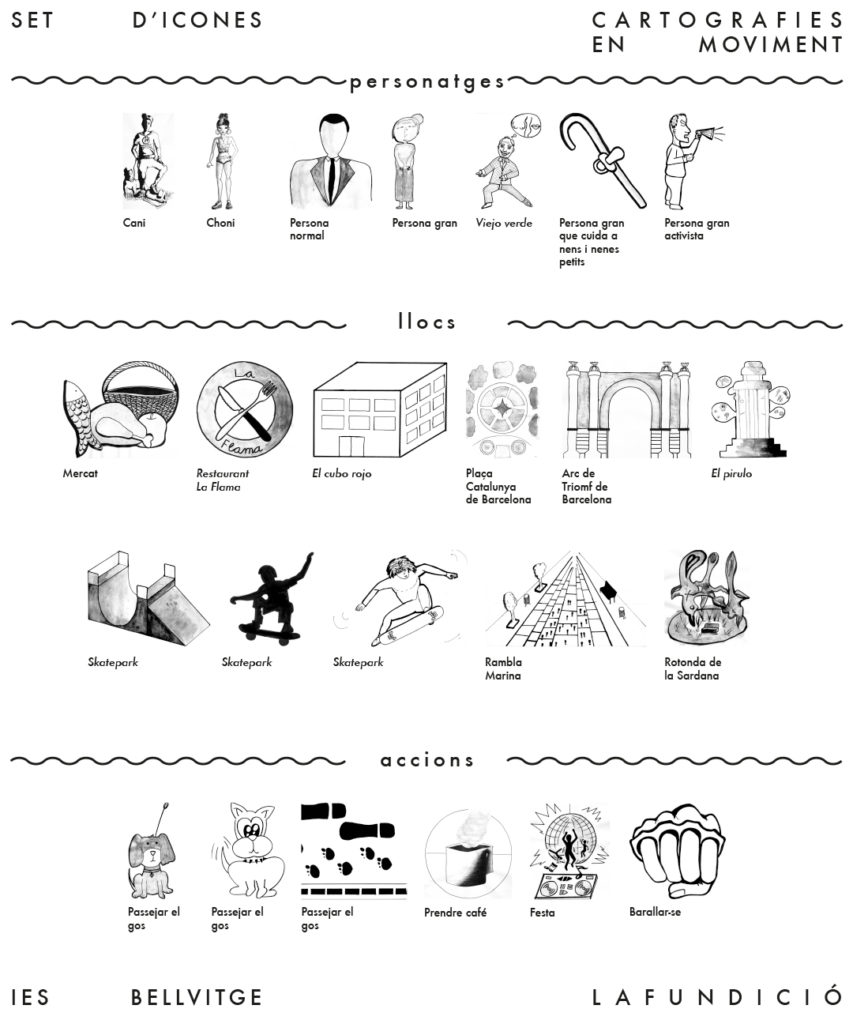
In line with the above, cartography becomes a tool to represent, translate and encode all types of physical, mental and emotional territories.
A starting point to go beyond the map and beyond its limits.
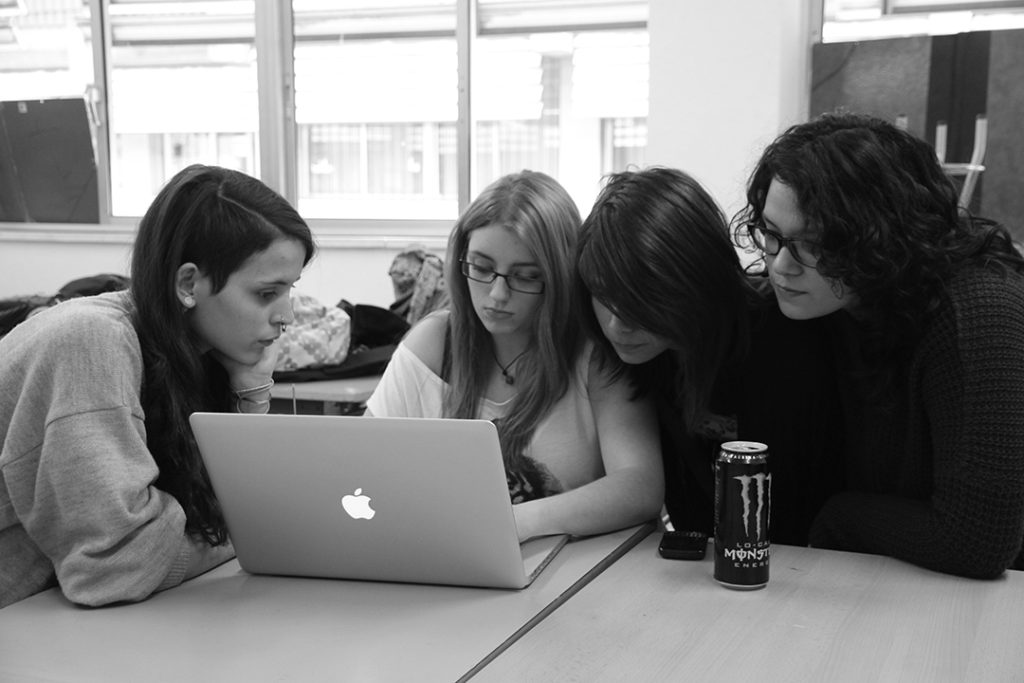
As in previous work processes, we will encourage the creation of spaces for debate and collective creation, based on dialogue, and on learning between peers, with and from colleagues, where each student can contribute their knowledge and interests.
· Generate debate and reflection in the institute about culture in the neighborhood.
· Build spaces for coexistence from plurality.
· Deepen the connections between cultural practices and social transformation.
· Consolidate a network of work, exchange and learning between different entities, projects and cultural, artistic and social practices.
· Promote the role of young people in the construction of the city.
· Promote the active role of educational institutions as producers of culture.
· Deepen the direct democratic participation of citizens, and especially young people, in common affairs.
· Know cartography as a creative tool in the field of culture, art and education.
· Produce cartographies on the practices, agents and cultural institutions of the neighborhood.
· Produce visual and graphic materials that collect the work processes.
· Create spaces for reflection and debate on issues of common interest.
· Create digital tools for the communication and coordination of local networks.
· Publicly present and distribute the work done.
